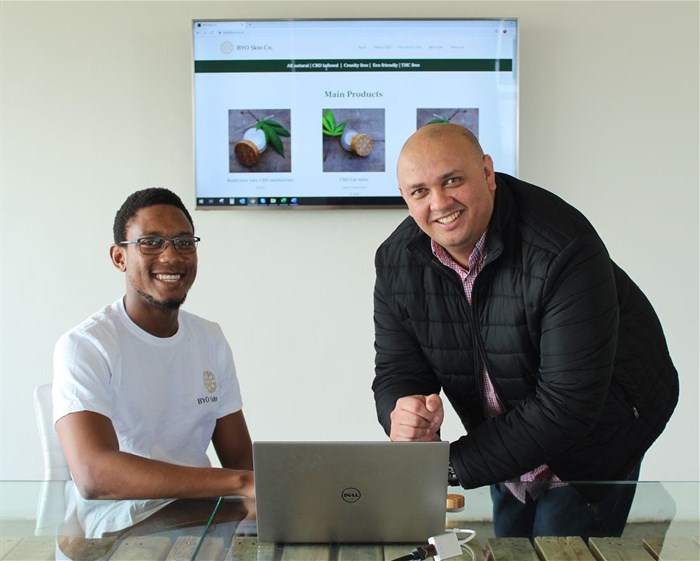From a build-your-own skincare product to a delivery service for students run by students, aspiring entrepreneurs from the University of Cape Town's Genesis Project were tasked with establishing their own business, as part of their Honours-level Programme in Management in Entrepreneurship (PDE) course.

L to R: Mufaro Chiwara, BYO Skin representative and Craig Fester of 1-grid.
Local web hosting company, 1-grid.com, partnered with the students to provide them with the tools they needed to get online. This included a unique domain name, an SSL certificate to secure their website and access to a state of the art, responsive website builder where they were able to customise and update their websites according to their business needs.
“Customer trust is hardest to earn when you’re starting out because you don’t have any customers yet, but you need to earn customer trust before they'll buy from you,” says BYO Skin representative, Mufaro Chiwara. “Having a website gave us credibility and legitimised our business. It also helped us achieve national reach.”
With a large percentage of consumers using the internet to find local businesses, a strong online presence is crucial for startups.
“We wanted to provide the students with the necessary support to grow their businesses,” says 1-grid.com’s Craig Fester, who helped the students build their own websites.
“Young people make great entrepreneurs because they can approach old problems in new and innovative ways. However, they often lack the experience and resources needed to get online – this is where we could step in, to give the students a step-up.”
Given the limited budgets of most small and startup businesses, the ability to build and maintain a website is a substantial advantage.
“At first, we were worried that building our own website would be too time-consuming and too complicated. Using 1-grid.com’s website builder tool, we set up a basic website in a few hours. As our business grew, we were able to update the site ourselves, this helped us stay relevant and attract new clients and we also saved a lot of money,” says Pigeon Couriers representative, Robert Tsiliyiannis.
Other businesses created as part of the course include Outpost, a sales directory platform that connects consumers with a service company tailored to their budget, and Trove Clothing, a platform that allows customers to upload and sell pre-loved clothing.
On top of meeting their substantial academic requirements, the students faced the usual challenges of starting a business. They had to develop an innovative solution to a real-world problem, raise their own startup capital, produce their product or platform locally and drive it into the market by building trust with actual customers in order to hit their sales targets.




























